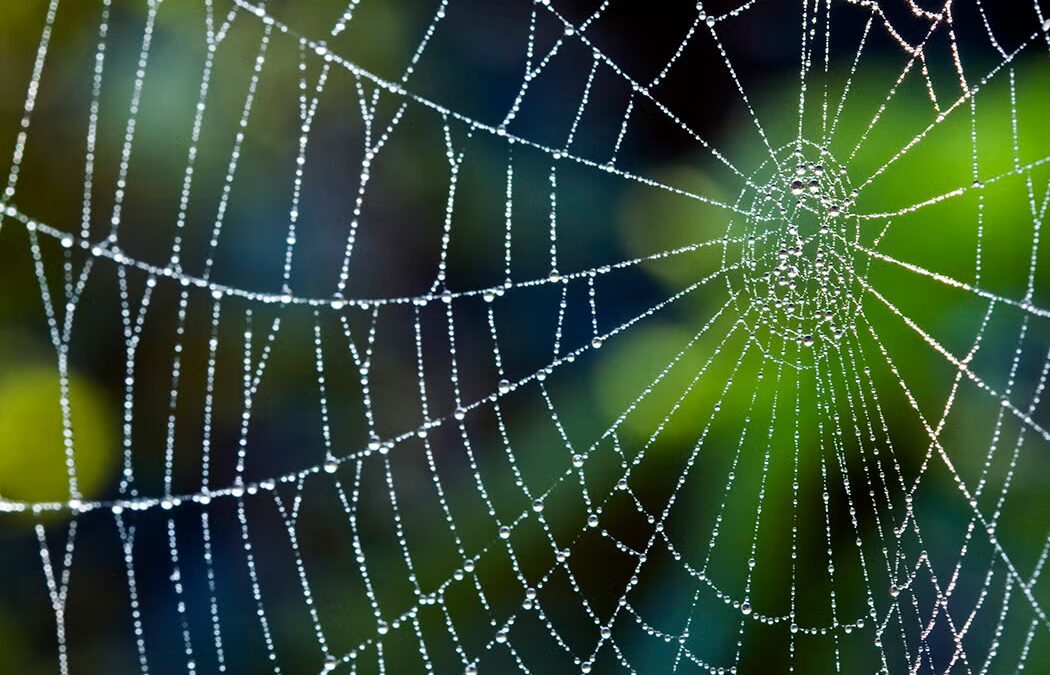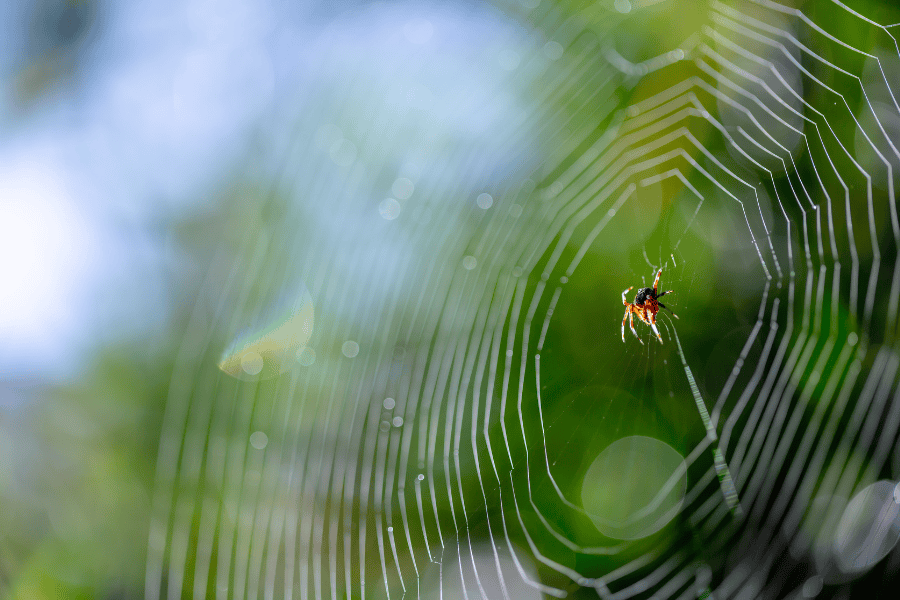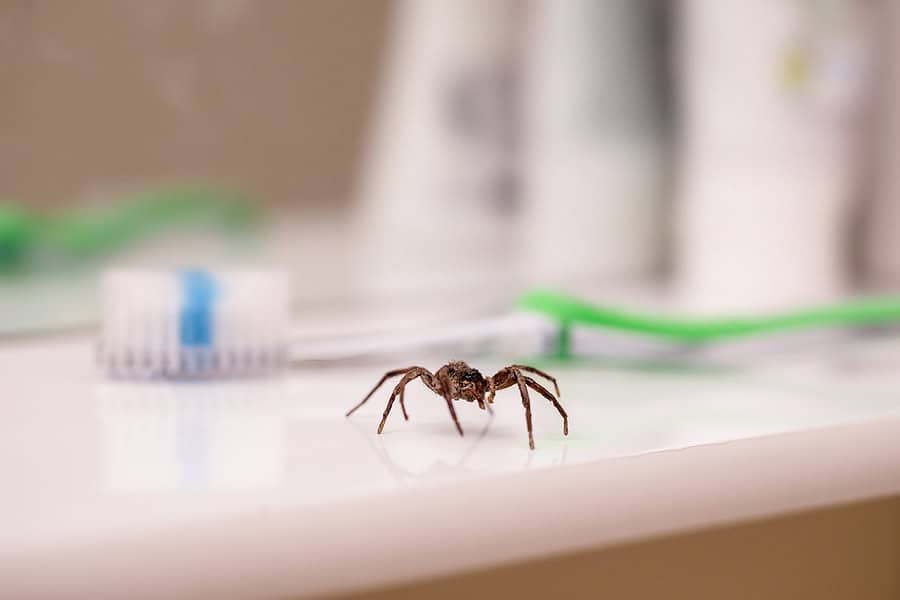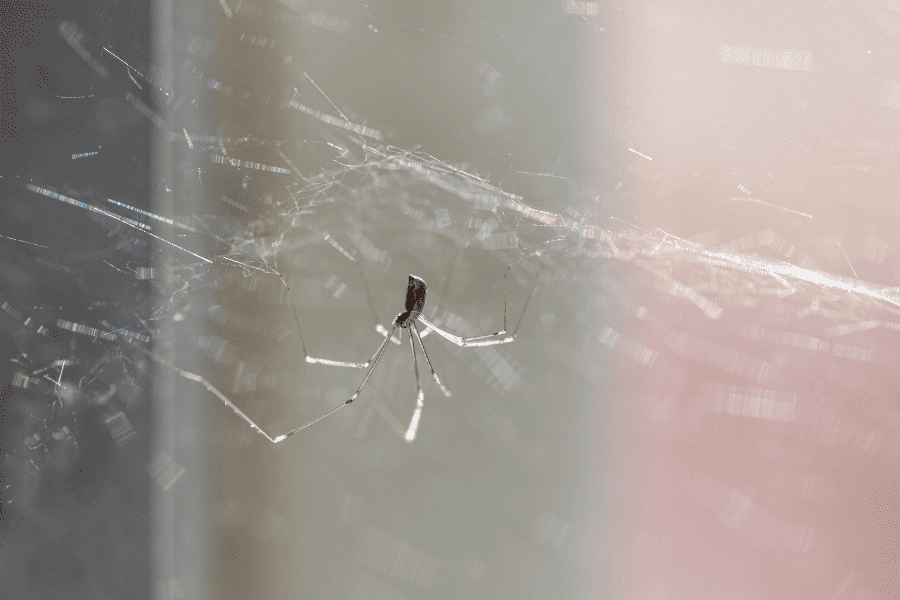READY TO GET STARTED?
REQUEST A FREE ESTIMATE
Fill out the form below or call (888) 466-7849 for a free, no-obligation estimate.

Living in Florida means enjoying the state’s lush ecosystems and warm climate—but it also means sharing your space with some unwelcome eight-legged visitors. While most spiders are harmless and even beneficial by controlling insect populations, others can pose serious risks if not properly identified and managed. If you’ve discovered a spider in your home or garden, this guide will help you recognize some of the most common spiders in Florida and give you the tools to handle them without causing any harm to you or them.
Spiders are nature’s pest controllers, reducing the need for chemical pesticides by preying on insects like flies and mosquitoes. However, not all spiders are friendly neighbors. Venomous species like the Brown Recluse and Black Widow can pose health risks to humans, which is why proper identification is essential. Knowing whether you can coexist or need professional help ensures that you take the right action.
For those focused on eco-friendly practices, understanding which spiders are harmless can allow you to protect beneficial species while maintaining a healthy environment around your home.
If you’re an environmentally conscious homeowner, there are several ways to manage spider populations while keeping your space pest free and sustainable:
Before rushing to remove every spider, remember their ecological benefits:
By allowing harmless species to thrive in and around your home, you’re supporting a balanced ecosystem that benefits both your environment and your family.
Living in Florida means sharing your space with spiders, but understanding which common spiders in Florida are beneficial and which are harmful will help you manage them responsibly. If you find yourself dealing with venomous spiders, don’t hesitate to contact a professional pest control service. Always prioritize eco-friendly methods for a pest-free home and a healthier local environment.

As the cooler weather settles in here in Pompano, homeowners may notice an increase in spider activity around their homes. While these eight-legged creatures can be unsettling, understanding their behavior and how to manage them can help keep your home comfortable and pest-free.
As temperatures drop, many insects become less active, which can lead spiders to seek shelter indoors where it’s warmer and food is more readily available. Spiders are natural predators, and they often move inside to find their next meal, which may include other pests hiding in your home.
Spiders are excellent at finding cozy spots to spin their webs. Here are some common areas you should check around your home:
While spiders play a beneficial role in controlling insect populations, their presence in your home may not always be welcome. By staying proactive and keeping an eye out for spider activity, you can maintain a comfortable living space in Pompano. Embrace the cooler weather and take these steps to ensure your home remains a cozy refuge—without any unexpected visitors!

If there’s one thing most of us can agree on, it’s that spiders belong outside, not taking over our Naples homes! While these eight-legged visitors may be great for controlling other pests, no one wants to find them lurking in every corner of our home and property. If you’re tired of spotting webs and want to keep spiders out of your home, here’s how you can send them packing!
Naples offers a warm, humid climate that spiders thrive in! These pests are attracted to dark, undisturbed places like attics and even your closets. Plus, if you’ve got other pests hanging around, spiders will happily stick around for an easy meal. Check out our do-it-yourself tips to deter spiders from your home and property:
If you’ve tried everything and still find spiders creeping around, it might be time to call a local pest control company near you. These professionals can treat both the inside and outside of your home, ensuring that you can keep spiders out of your home.

Spiders are typically harmless and even deemed beneficial by controlling other pests, but having them in your home can be alarming! We breakdown some easy do-it-yourself spider prevention tips that you can use around your Lauderhill home.
Spiders love to hide in cluttered spaces, so keeping your home clean and tidy can significantly reduce the chances of them making themselves at home. Always vacuum regularly, paying extra attention to corners, underneath furniture, and hard-to-reach areas. Look at dust surfaces and if you spot a spider web with no spider, carefully remove the web. It’s also crucial to declutter storage spaces, basements, attics, and garages. Organize items in sealed plastic containers instead of cardboard boxes, which spiders will infest.
Spiders will enter homes through the tiniest cracks and gaps. Sealing these openings will help keep them from entering. Inspect your home and check for cracks in the walls, windows, and doors. Seal any you may find as soon as possible with sealant or caulk. Ensure that your windows and vents have tight-fitting screens, replacing any damaged screens to prevent entry.
Spiders are attracted to insects, which are drawn to lights at night. Look to reduce outdoor lighting to minimize spider activity. Replace white bulbs with yellow bulbs, as insects are less attracted to it. Additionally, consider utilizing timed outdoor lights to avoid them staying on overnight and attracting insects.
Your yard is the first line of defense to discourage spiders from entering your property, so it’s important to keep it well-maintained. Keep shrubs, trees, and other plants trimmed and pointing away from your home. Clear out leaves, unused woodpiles, and debris that spiders can hide in. If you use mulch, avoid placing it near your foundation so it doesn’t provide a habitat for spiders and other pests.
Keeping an eye out for early signs of spider activity will help you address the issue before it becomes a full-blown infestation. Make sure to regularly inspect areas like closets, basements, and garages for webs and spiders.
If you notice a significant spider problem, it’s always best to call a pest control company near you to help. These professionals will provide you with a comprehensive inspection and the best pest control plan for your situation.

If you’ve noticed an increase of spiders inside your Florida home, it can be quite alarming for most homeowners! While most spiders are not dangerous to humans and are considered a benefit to our environment, it doesn’t mean you want them inside your house. With several species found in Florida, including daddy long legs, southern house spider, black widows, and more, it’s inevitable to come across one, but it’s easy to prevent, reduce, or eliminate their presence around your home. Check out the reasons why spiders are entering your home and easy spider prevention tips to avoid them in the future.
Spiders enter homes to search for food and find a habitat to continue looking for prey to feed on. Spiders eat insects, so if you’ve found webs around your home, it’s likely that those spiders found their food source. Inspect the inside and outside of your home for spider signs, these include spider webs, egg sacs, insects they feed on, or the spiders themselves.
There are several ways you can help reduce spider activity on your property. Spiders are looking for food, so it’s important to reduce the amount available to them by removing other household pests from your property. You can reduce the insects on your property by:
Not only is it important to reduce the insect population to avoid spiders, but it is equally important to deter them from even entering your home. Consider these spider prevention tips to avoid them from invading indoors:
If you’ve noticed more spider activity than you’re used to, consider calling your local Florida pest control company for help. These professionals will provide you with a thorough inspection and recurring pest control plan to help avoid spiders and other household pests in the future.